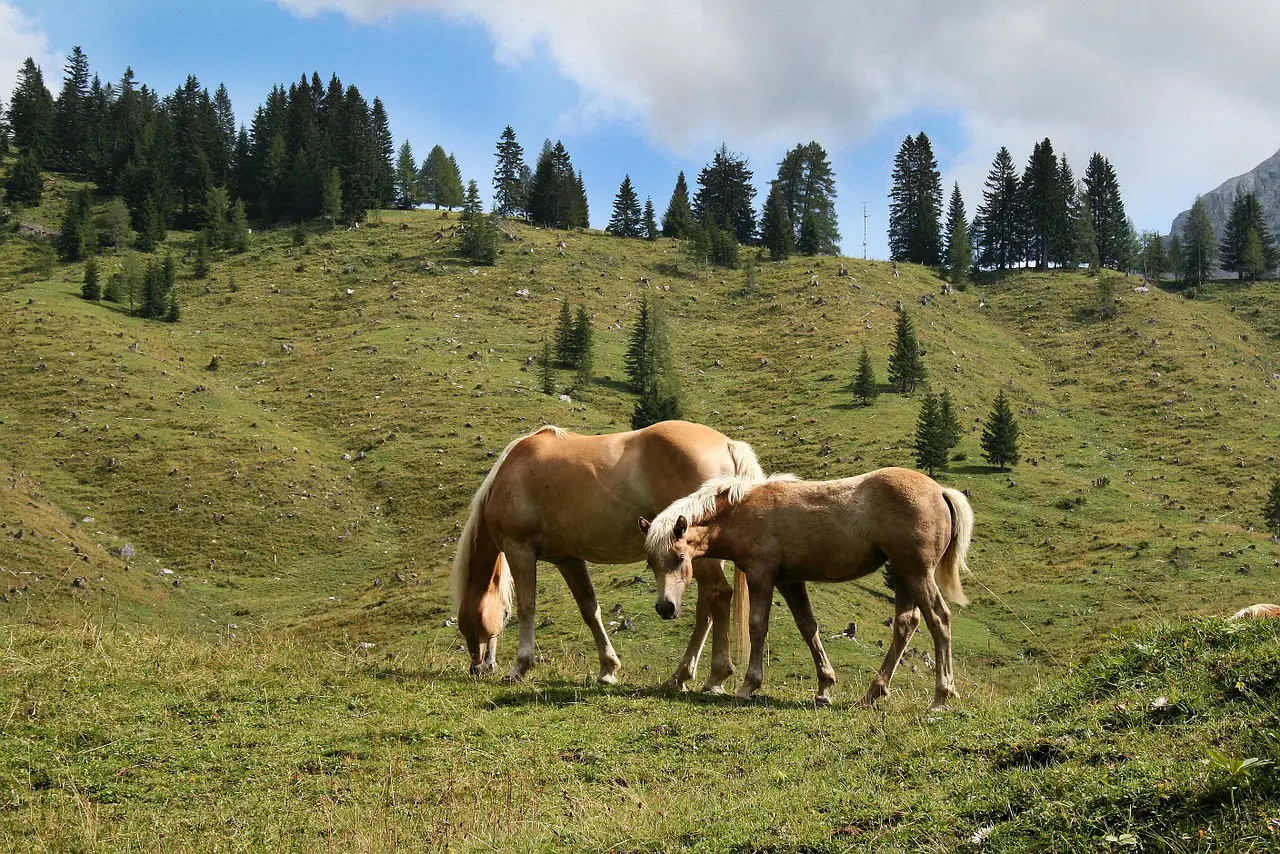Last Updated on February 19, 2022 by Allison Price
Magnesium, a vital micromineral is being recommended more often by veterinarians for horse treatment. What is the purpose of magnesium for horses?
Magnesium plays a variety of roles in the body. Magnesium is one of the most important minerals found in bone. The skeleton contains up to 60% of magnesium, while only 30% is available for mobilization when it is needed elsewhere. Over 300 enzyme reactions involve magnesium, including the creation of cellular energy as well as decoding genetic information. It is involved in nerve transmission and muscle contracting. Understanding the role of magnesium and muscle relaxation is key to understanding subclinical symptoms which may indicate that supplementation might be required.
The body tries to balance magnesium within and outside of cells. Extracellular fluid contains only 1% of magnesium, which makes it difficult to test blood for magnesium deficiencies. Although a gross magnesium deficiency could prove to be fatal, it is rare in horses. Supplemental magnesium is used to treat subclinical deficiencies. These are the ones that are hard to detect but are easily treated.

Magnesium can be found in different amounts in grains and forages. Concentrate feeds can contain additional magnesium depending on how much is in the other ingredients. Magnesium availability in forages will depend on the amount of indigestible fibre and presence of oxalates. You can either get supplemental magnesium in the form of magnesium sulfate, magnesium oxide, or organic (chelated magnesium). Magnesium oxide, which has a 50% absorption rate, is the most common source. Magnesium oxide has the advantage that it cannot be absorbed by the body if it is not deficient. This makes it difficult to give too much magnesium oxide to horses. Magnesium sulfurate (Epsom salt), which is also available for horse absorption, can also be used. However, it can cause diarrhea and draw water into the bowel, so it is not recommended to be used daily.
Magnesium protects against inflammation and free radical damage. The protective role of magnesium in protecting against endotoxins is a promising link in veterinary medicine. Low blood magnesium levels in horses suffering from colic or laminitis, which can lead to endotoxin release and/or laminitis, are common. Treatment with magnesium may be possible to reduce the damage.
Magnesium could play a role insulin resistance and the equine metabolic disorder. Although the link between magnesium deficiency and diabetes in humans has been established, it has not yet been confirmed in horses. Scientists know that insulin can modulate magnesium movement from intracellular toextracellular tissues. They also know that blood magnesium levels rise after eating high amounts of starch or sugar. This indicates that magnesium is involved in insulin’s ability to remove glucose from the blood. A low magnesium level in a cell can lead to impaired carbohydrate metabolism, which will result in insulin resistance. There have been some reports from horses that supplemental magnesium improved insulin resistance and reduced the neck fat linked to the disease. However, a recent research showed no benefit to feeding magnesium and chromium supplements to insulin-resistant horses.
Calcium and magnesium act in a negative way within the muscle. Magnesium causes muscle contraction while calcium induces relaxation. Muscles can spasm if there isn’t enough magnesium. Low magnesium levels in muscle tissue could be due to a genetic disorder. However, some horses have reported that magnesium supplementation has been effective in treating chronic tying up.
Synchronous diaphragmatic flapping can be caused by magnesium deficiency. Synchronous diaphragmatic Flutter is characterized by spasmodic contractions in the diaphragm. It’s most common in endurance horses who have electrolyte imbalances. This condition is also called thumps. The treatment with magnesium and calcium can speed up recovery.
Horses with severe magnesium deficiencies such as those seen in grass tetany in cattle are uncommon, but they have been documented.
Because magnesium plays a role in nerve excitability as well as muscle contraction, calming supplements often contain it. There is also a suspicion that nervousness could be due to low magnesium levels. The behavior of some horses may be affected by magnesium aspartate, according to research from Charles Sturt University in Australia.
The diet should reflect the balance between calcium and magnesium. It is best to keep the ratio of calcium and magnesium between 2.5:1 and 3:1. The horse’s typical diet will contain sufficient calcium and magnesium. Supplementation with magnesium should be considered if necessary.


